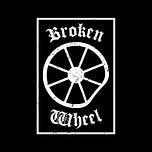- For it comes in vanity and goes in darkness, and in darkness its name is covered. -

Jessie, Tyler, and Sam, my kids.
One of the cruelties of dealing with infertility is you precisely know when and how you lose your children.
Stillborn infants and miscarriages are tragic. A woman experiences pregnancy, the family gathers around her to rejoice, and then it’s gone.
What leaves is hope, purpose, and the future. The cards of your flimsy castle are blown down by an unwanted breeze and there is nothing left to do but start stacking them again.
How many times can you go on before you can’t? When is the right time to give up? What are you holding onto?
All those thoughts visited the women and men of ancient times, which Solomon writes about. They poured their lives into the first few months of their babies’ life or carried them to term.
And for what? The good book tells us, but its so awful to speak of it when someone hurts this deeply.
Vanity. The emptiness of emptiness. The unfulfilling meal of clouds.
Hebrews didn’t name their children until certain ceremonies could be fulfilled. The reason the children go in darkness and don’t have names is because they didn’t live to receive names.
Why this ritual? Why don’t you let your kids name a stray dog or cat that keeps hanging around?
You grow attached.
We’ve been trying to have children for close to three years now. Since we’ve been doing procedures, we know we’ve lost at least three.
It could be more, but we know these three. It’s easier to only think you’ve lost the ones you know, and so we do, right or wrong.
Perhaps a moral failing on our part that we’ll know the answer to one day.
Unlike the people in Solomon’s time, there is no darkness. We know how to monitor, manipulate, and see everything about pregnancy.
Katie’s blood is measured for the correct hormones, ultrasounds are performed to look for our hopeful children, and microscopes show them to us as a few cells.
Nothing can hide from us, yet nothing is whole.
The man we discussed in the previous verses? Is my child truly better off than him?
As painful as it is for me to say it, yes. If my children lead lives devoid of God’s love, peace, and hope, then yes, I’m happy there not here.
Now, they would’ve had ever opportunity not to live that way had they been born. I’m not God, but I can’t see them heading down that path.
They would’ve at least known what they were doing was explicitly wrong. Would’ve that had been enough to turn them back? That’s in God’s hands.
My children had lives. I know that explicitly. Were they better than this man’s?
That’s an impossible question, and it requires an impossible story.
I can’t explain why or how, but a few days after my daughter died, I came home listening to a song about a mother inviting her child into the world.
It was random, just on a podcast I like to listen too. It was catchy, and I started to dance a little.
All of a sudden, I was spinning Jessie around. I could see her smile, freckles, and hair, just like her mother’s.
Then she was gone, and I fell to the floor sobbing.
I know it was brief, but the fact I got to see her smile fills me with joy.













Share this post